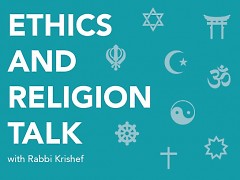Ty Silzer, a former pastor in the Presbyterian Church in America, responds:
“For me, this is pretty simple ‘no,’ but let me share a few stories, and circle back to God and scripture.
“I was watching a show sometime in the last six months, where a wife and her husband were talking about him going to the strip club as if it were no big deal. I was dumbfounded—even though this was fiction—partly because this idea is so foreign to me (‘it’ being ‘ok’), but how the wife was cool with her husband ogling another woman’s body. Similarly, just over a year ago, I was in my friend’s spin class in which she played a Maroon 5 song to our sweat; a lady two bikes over from me leaned over to her friend and said with a big smile, ‘Adam Levine is my boyfriend,’ as I took note of her engagement and wedding bands.
“So what does God want? ‘Surely, You desire integrity in the inner self/innermost being’ (Psalm 51:6)—He doesn’t want our pretty words, our show-up on holy days, all of the outward signs—He wants our heart. Our spouses should get our entireties—not just our coming home/motions.
“In the TV show example, there’s physical, tangible (visible) disruption to fidelity. In the spin class example, there’s emotional, internal disruption. Cheating is a disruption to fidelity and to love, and it can happen either publicly, or it can take place internally, never stepping outside our mind’s confines.”
Dr Sahibzada, the Director of Islamic Center and Imam of the Mosque of Grand Rapids, responds:
“Virtual sex may constitute cheating in a way when modern technological instruments affect superfluously someone’s perception, imagination and determination. It may lead to act in real scenario committing satanic performances against will of God.
“This imaginative unreal situation will bring a person dead close to ruins based on evil domination. It will destroy the concerned person spiritually, ethically, faith wise leading to ill-fated life. The person may adopt vile practices which are not beneficial in all respects relating to this world and hereafter.
“Successful are those who submit to the creator, avoid nonsense, guard their chastity in its entirety. Anyone who exceeds limits set by God is bound to face dire consequences of base deeds.
“The failure is destined to corrupt and immoral individuals who follow Satan’s program. The success in both worlds is with purification of heart, mind and following guidance of God.”
Father Michael Nasser, who writes from an Eastern Christian perspective and is Pastor of St. Nicholas Orthodox Christian Church, responds:
“Jesus said the even looking at someone lustfully constituted committing adultery in one’s heart. Years ago I heard a confession of a teenage girl who listed the variety of sexual acts that she had committed. About the only act absent from her list was actual intercourse because, as she explained, she wanted to save her virginity for the man she would be married to. While she may have physically been a virgin in the slimmest of definitions, in her heart she was far from pure.
“It’s easy for us to draw imaginary lines and imagine we’re on this side of them. With the explosion of pornography that came with the digital revolution, more and more people are hiding behind the justification that since all the porn, sexting and other ‘virtual’ sexual experiences are not the ‘real thing,’ it’s not cheating. Jesus tried to save us from the insanity where external realities are more important than the condition of our immortal souls. We would do well to turn our attention to the most important and valuable sexual organ we have: the human heart. It is in the heart that we can connect in most intimate ways with our spouses within the union blessed by God called marriage. And it is in the heart that we have the potential to also encounter and join in intimate spiritual connection with God. The impure thoughts and actions we entertain make both encounters difficult if not impossible, regardless of whether or not we consider it ‘cheating.’ ”
My response:
From Jewish tradition, I want to add a distinction to the discussion, between actions which are wrong and actions which constitute adultery. Biblical adultery requires actual, physical, sexual, contact between a married woman and a man who is not her husband. We can expand this, based on the thousand year old Jewish prohibition again polygamy, to include actual, physical, sexual, contact between a married man and a woman who is not his wife. Virtual reality sex (with a person other than one’s spouse) is damaging to an intimate relationship and constitutes a kind of cheating, but I would not define it as adultery.
This column answers questions of Ethics and Religion by submitting them to a multi-faith panel of spiritual leaders in the Grand Rapids area. We’d love to hear about the ordinary ethical questions that come up on the course of your day as well as any questions of religion that you’ve wondered about. Tell us how you resolved an ethical dilemma and see how members of the Ethics and Religion Talk panel would have handled the same situation. Please send your questions to
[email protected].
The Rapidian, a program of the 501(c)3 nonprofit Community Media Center, relies on the community’s support to help cover the cost of training reporters and publishing content.
We need your help.
If each of our readers and content creators who values this community platform help support its creation and maintenance, The Rapidian can continue to educate and facilitate a conversation around issues for years to come.
Please support The Rapidian and make a contribution today.
